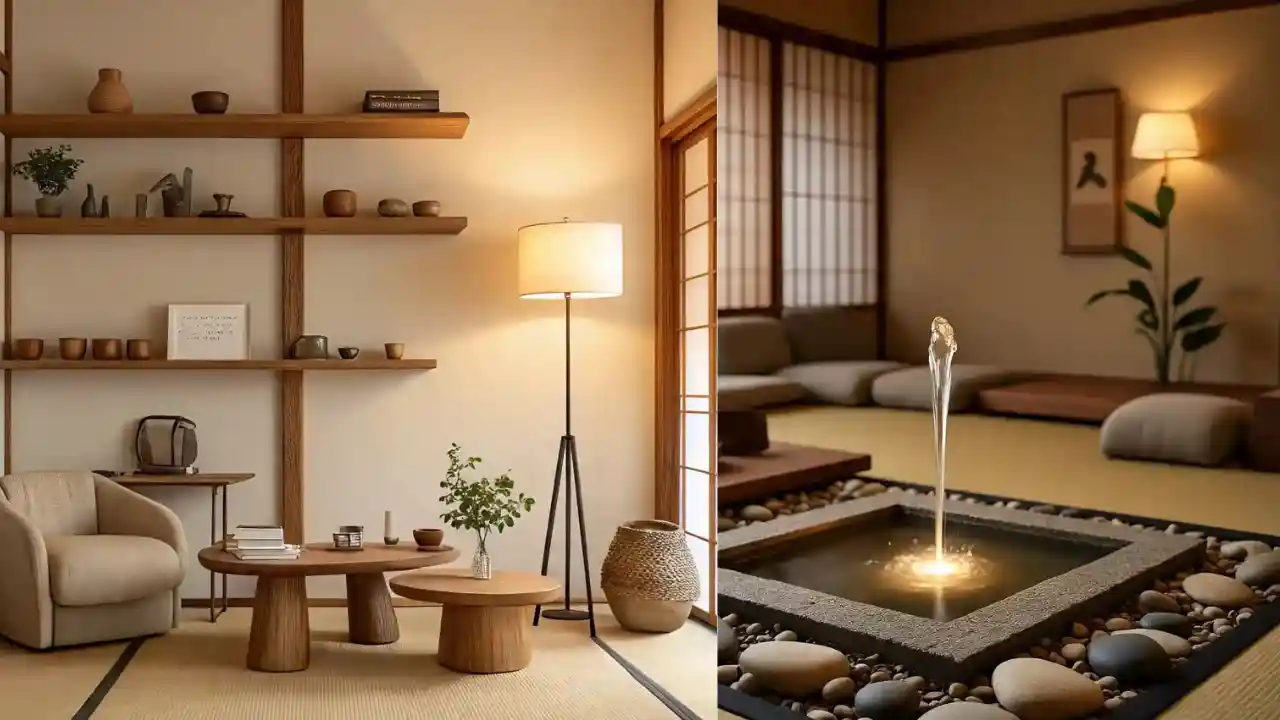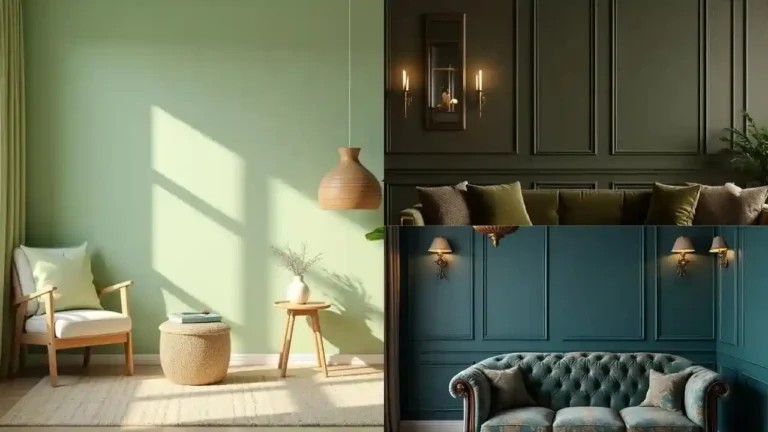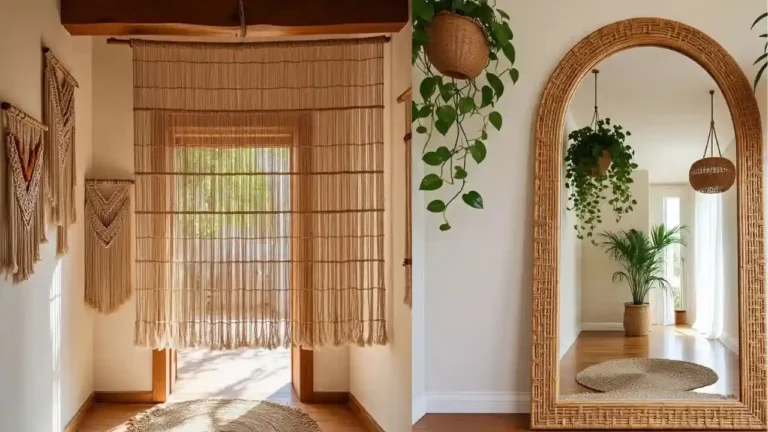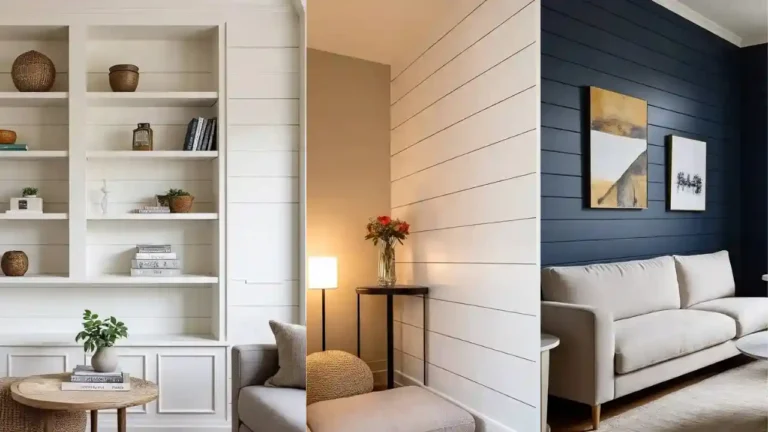29 Amazing Cozy Japandi Living Room Design Ideas for Modern Living
The Japandi aesthetic brings together the best of two design philosophies: the elegant simplicity of Japanese interiors and the cozy minimalism of Scandinavian spaces. It’s a style that’s grounded in mindfulness, harmony, and intention; perfect for creating a living room that feels like a sanctuary. If you crave balance, warmth, and purpose in your home, these 29 Amazing Cozy Japandi living room design ideas by Nova Home will offer plenty of inspiration.
1. Start With a Soft, Earthy Color Palette to Ground the Room
Japandi spaces begin with nature-inspired tones like warm beige, stone gray, and muted clay. These hues create a peaceful, grounding base that promotes calmness and cohesion. Avoid bright whites or overly saturated colors; they disrupt the sense of stillness.
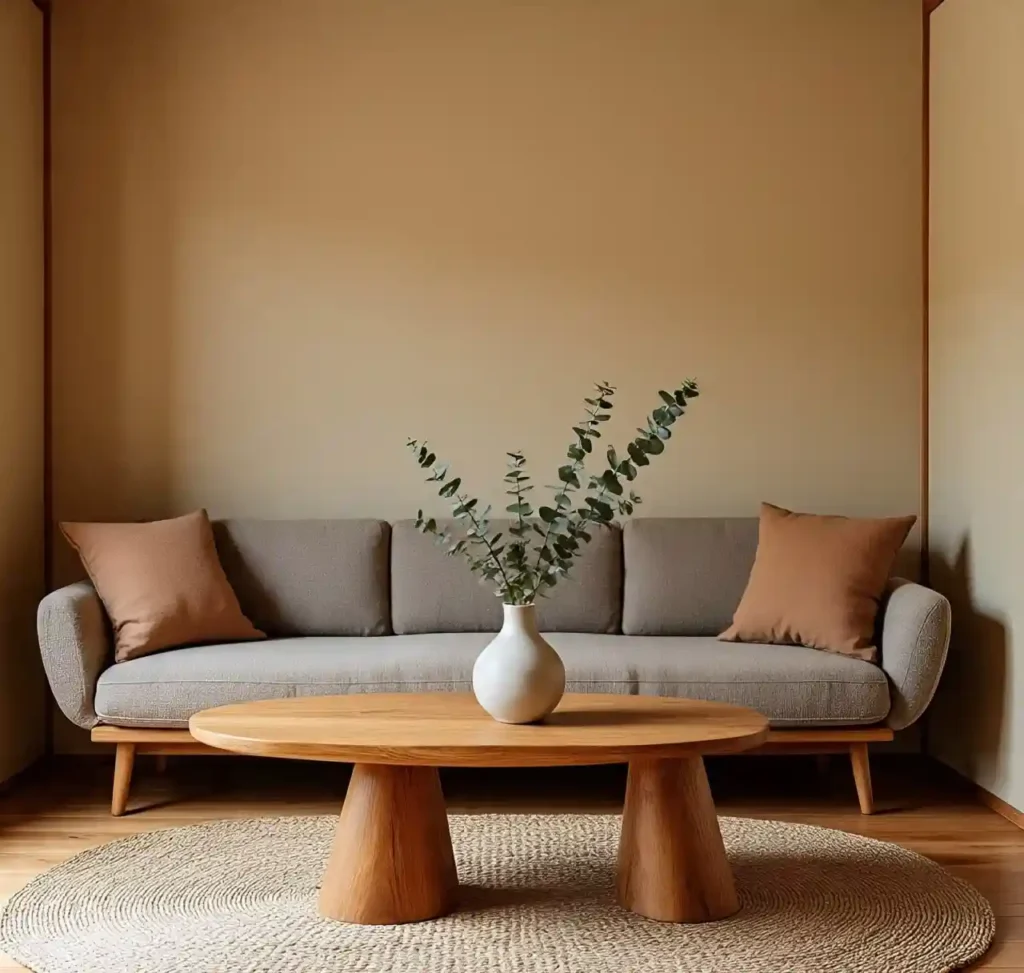
2. Invest in Low-Profile Furniture That Emphasizes Comfort and Flow
Choose furniture with clean lines and low heights to keep the room feeling open and intentional. Sofas and chairs should feel approachable yet minimal, with no bulky arms or flashy finishes. This arrangement also encourages a deeper connection to the floor and a sense of peace.
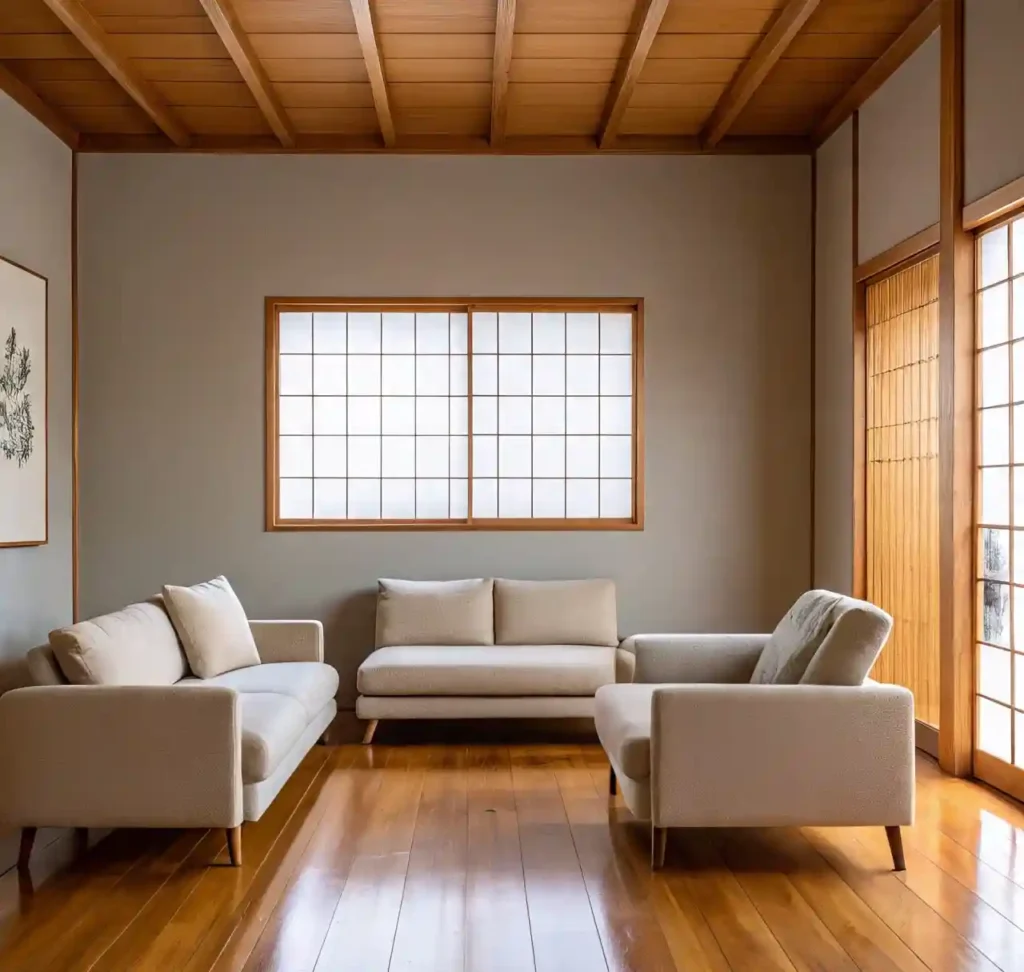
3. Leave Empty Spaces – Let the Room Breathe With Negative Space
Don’t overcrowd the room with furniture or decor. Negative space, known as “Ma” in Japanese design, is just as important as the objects you choose. It allows your room to feel serene and gives each element the attention it deserves.
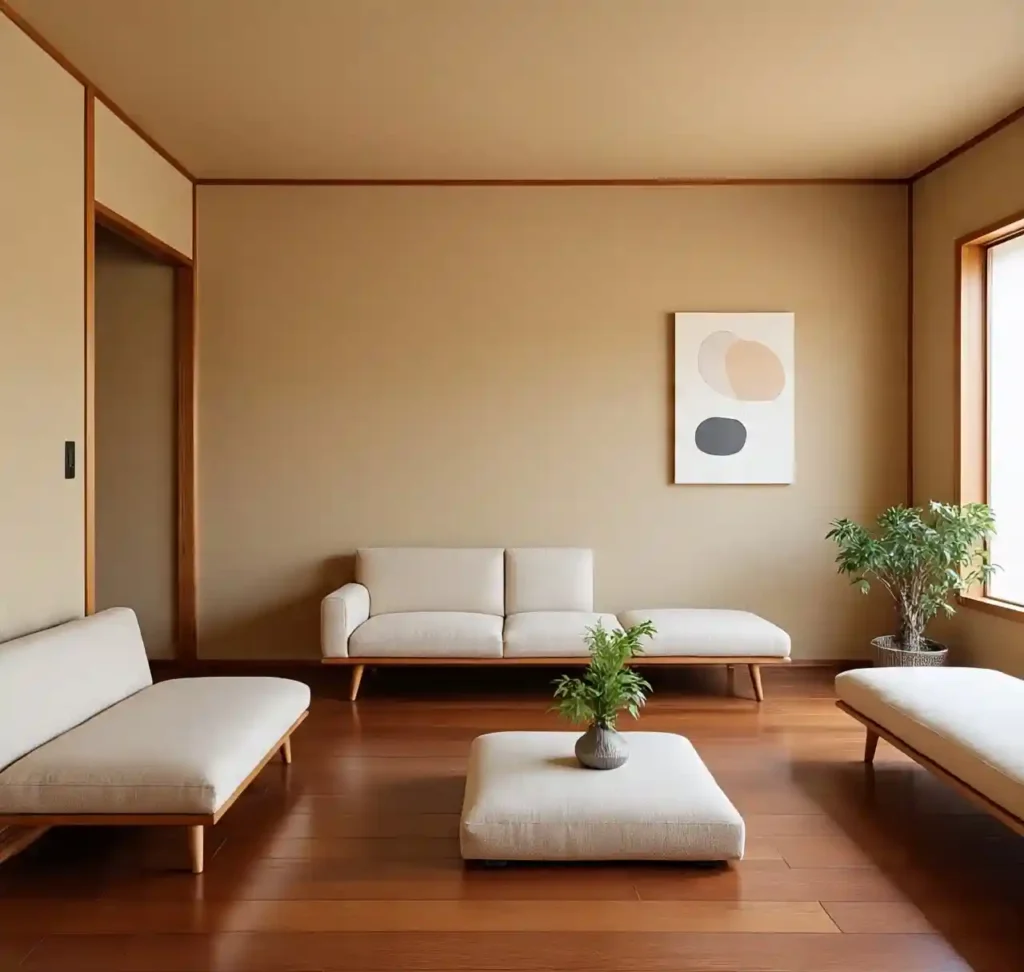
4. Use Natural Wood to Bring Organic Warmth Into the Room
Wooden elements in light or mid tones (like oak or ash) enhance the room’s calm and earthy vibe. Avoid glossy finishes; instead, choose matte or raw wood to maintain the style’s authenticity. Wood brings visual warmth without adding visual clutter.
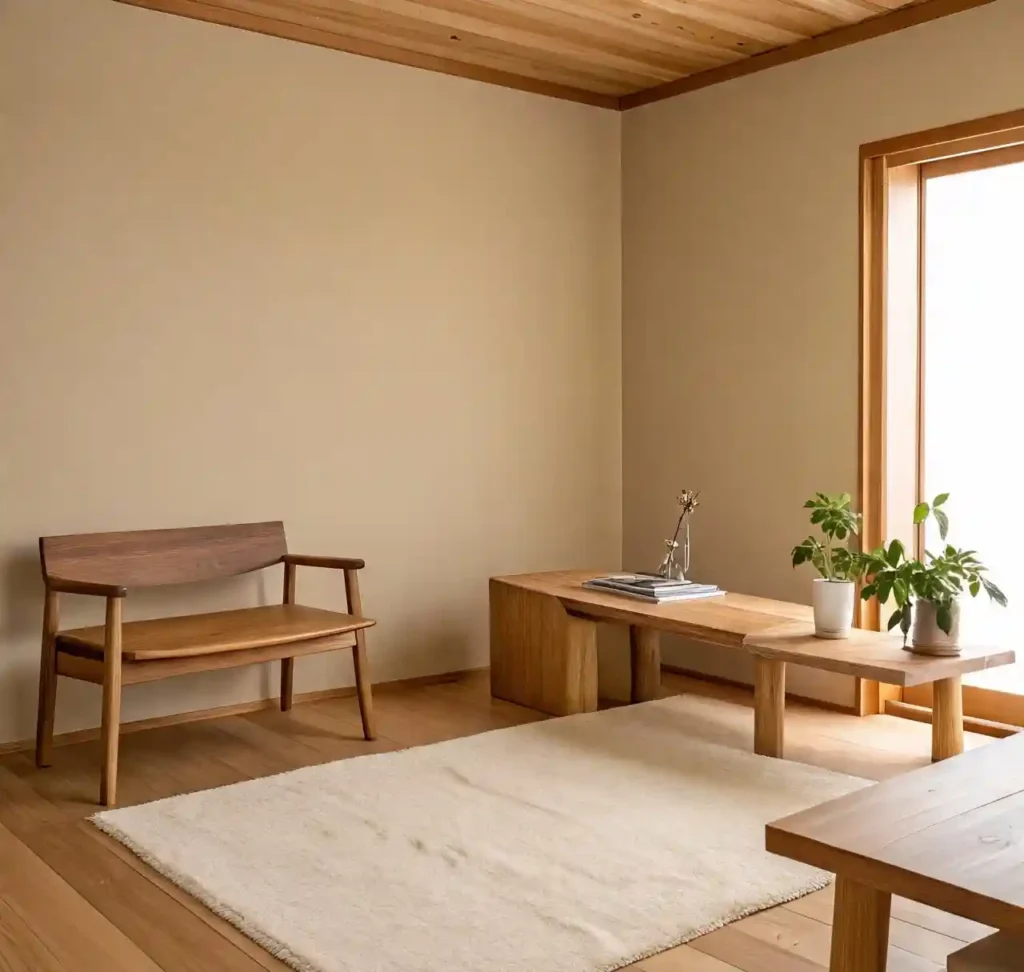
5. Embrace Wabi-Sabi With Imperfect and Handmade Decor
Celebrate the beauty of imperfection with pottery, handwoven rugs, or items with visible texture and aging. These pieces embody the Japanese principle of wabi-sabi, where irregularity and wear are seen as beautiful. It adds soul to your living space and keeps it from feeling sterile.
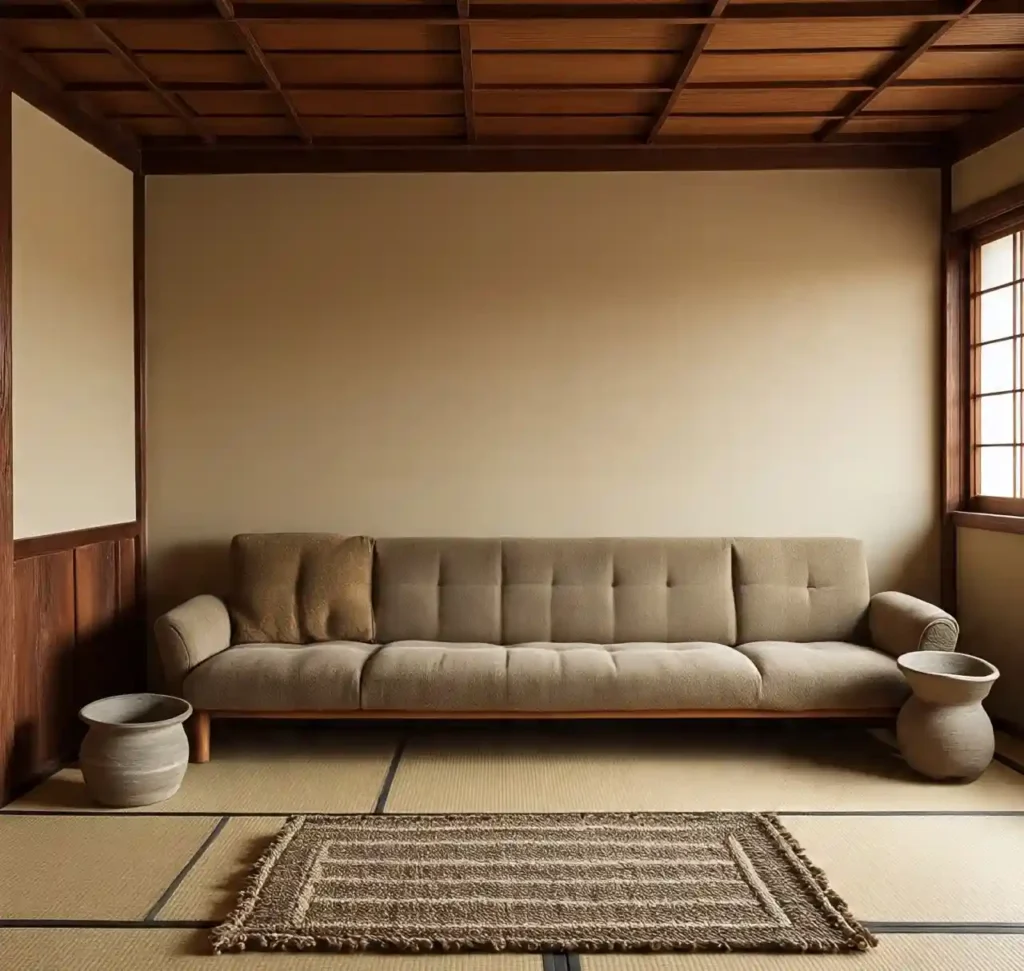
6. Illuminate With Soft, Ambient Lighting Instead of Harsh Overhead Fixtures
Use floor lamps, table lights, and pendant lamps that emit a warm glow. Materials like linen, rice paper, or rattan soften the lighting even more. Avoid overly industrial lighting, Japandi style values warmth and tranquility above all.
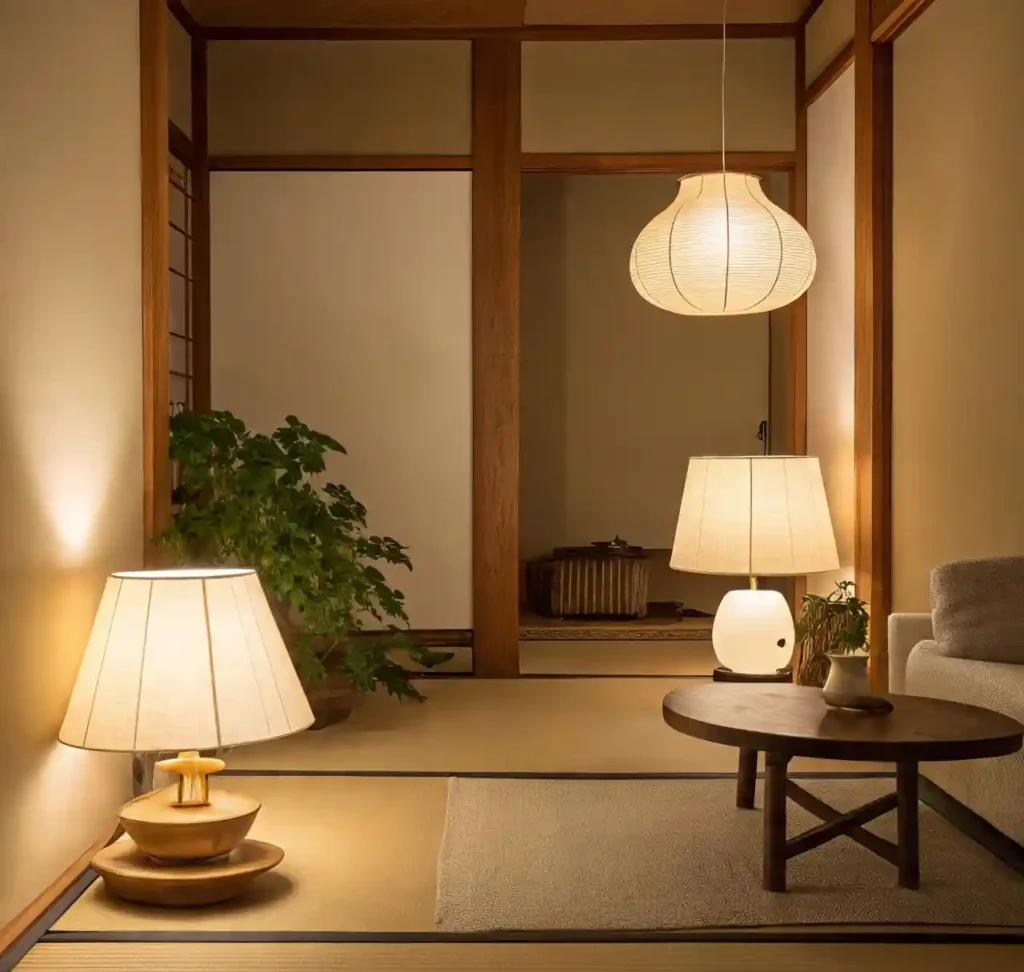
7. Layer With Natural Textiles Like Linen, Wool, and Cotton
Cozy up the space with cushions, throws, and curtains in breathable, earthy fabrics. Stick to solid colors or subtle patterns like stripes or checks. These layers add depth while keeping the palette consistent and calming.
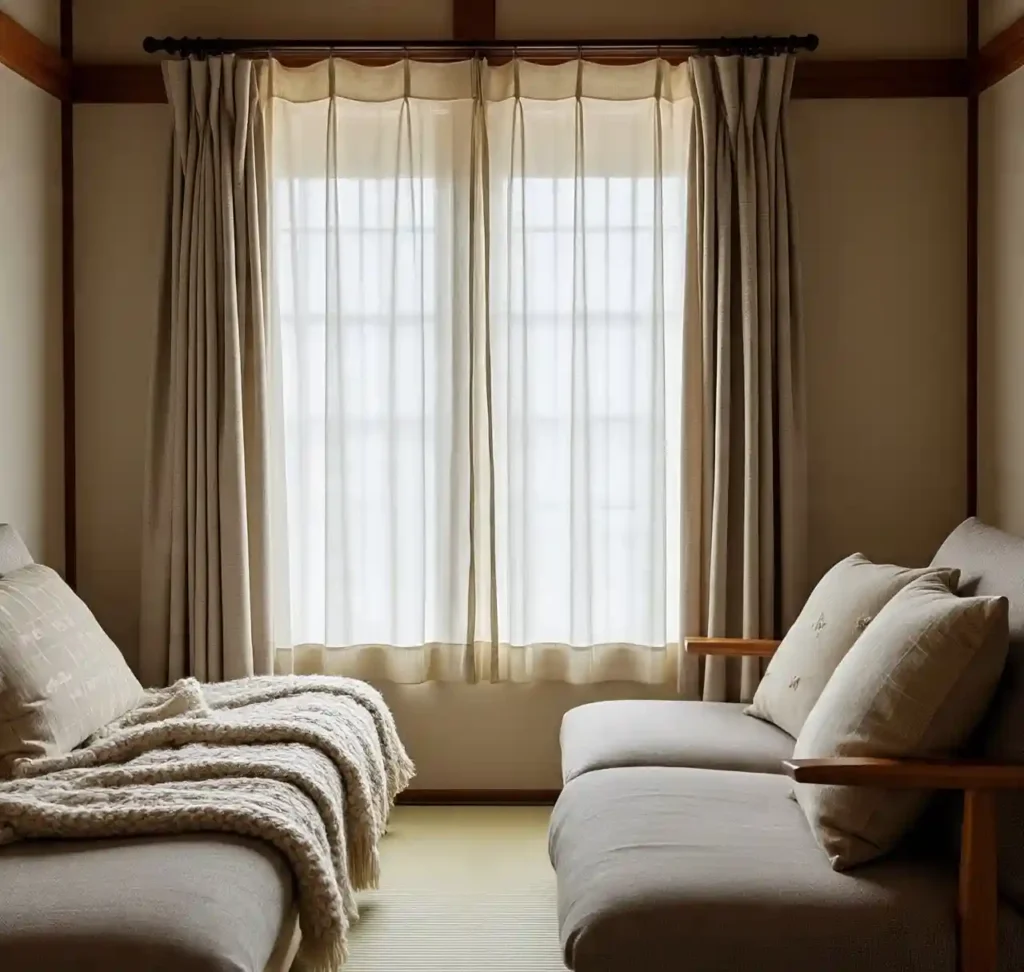
8. Keep Walls Minimal But Intentional With Art or Natural Elements
Use wall art sparingly, and choose pieces that reflect simplicity or nature; think ink sketches, soft watercolor abstracts, or pressed botanical prints. Alternatively, hang wooden panels, tatami-style screens, or natural fiber tapestries. The goal is to add interest without noise.
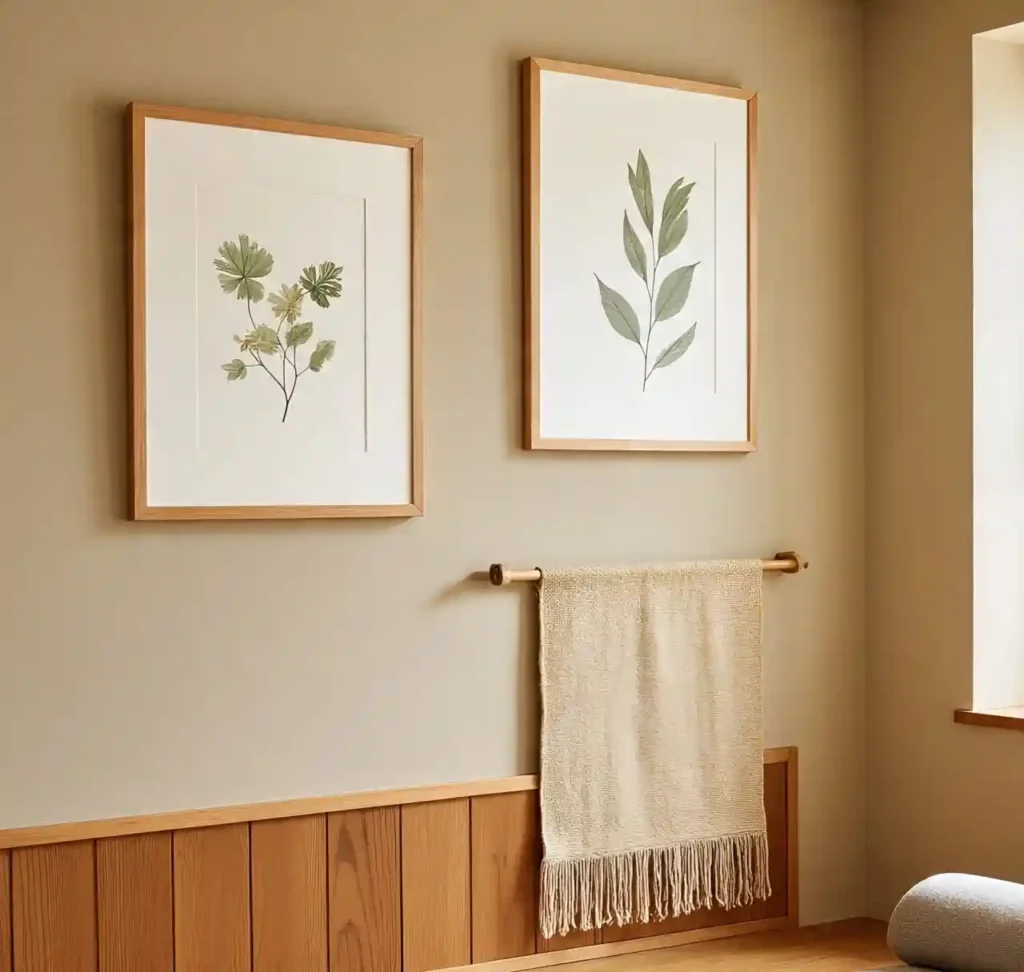
9. Add Greenery in Understated Ceramic or Stone Pots
Plants introduce life and calm without overwhelming the design. Choose foliage that’s architectural but simple, such as snake plants, rubber plants, or olive trees. Keep planters minimalist and avoid overly decorative containers.
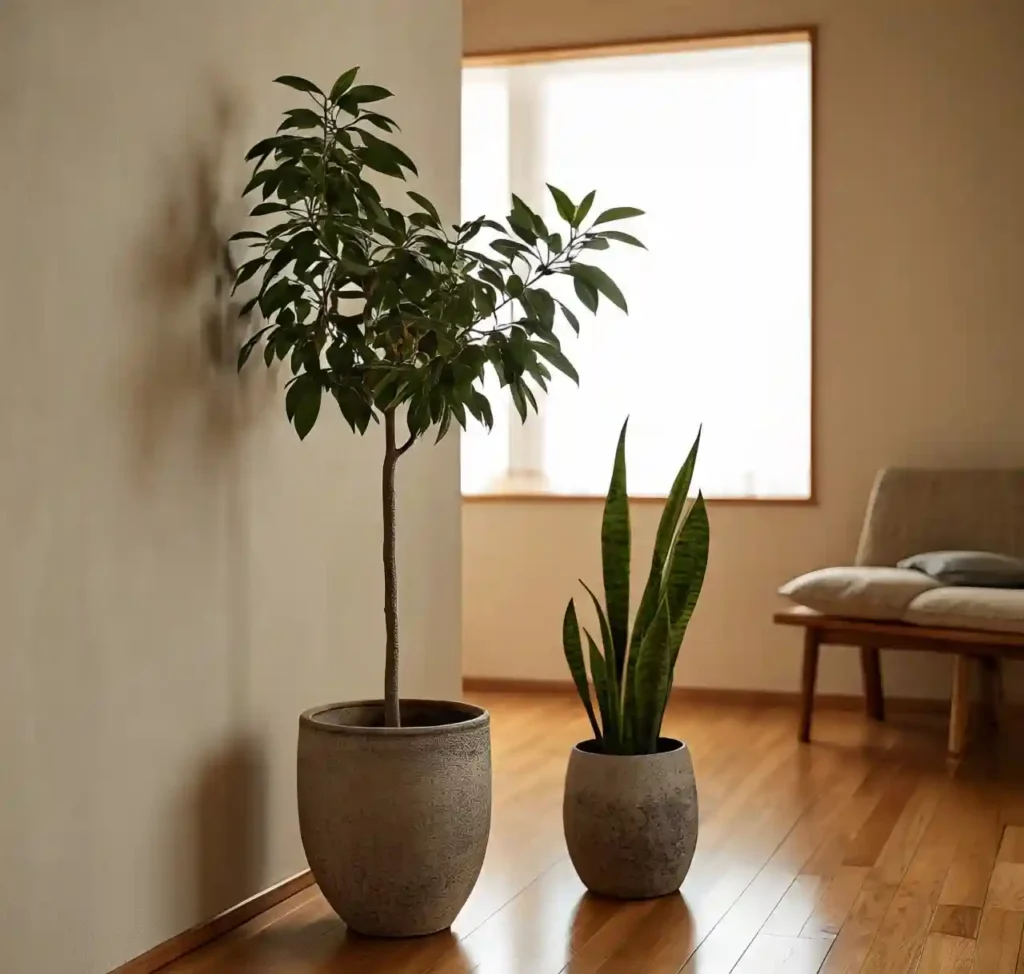
10. Practice Decluttering With Thoughtful Storage Solutions
Japandi is about intentional living, so everything in your room should serve a purpose. Use low wooden cabinets, woven baskets, or built-in shelves to conceal everyday clutter. The cleaner your space, the more peaceful it feels.
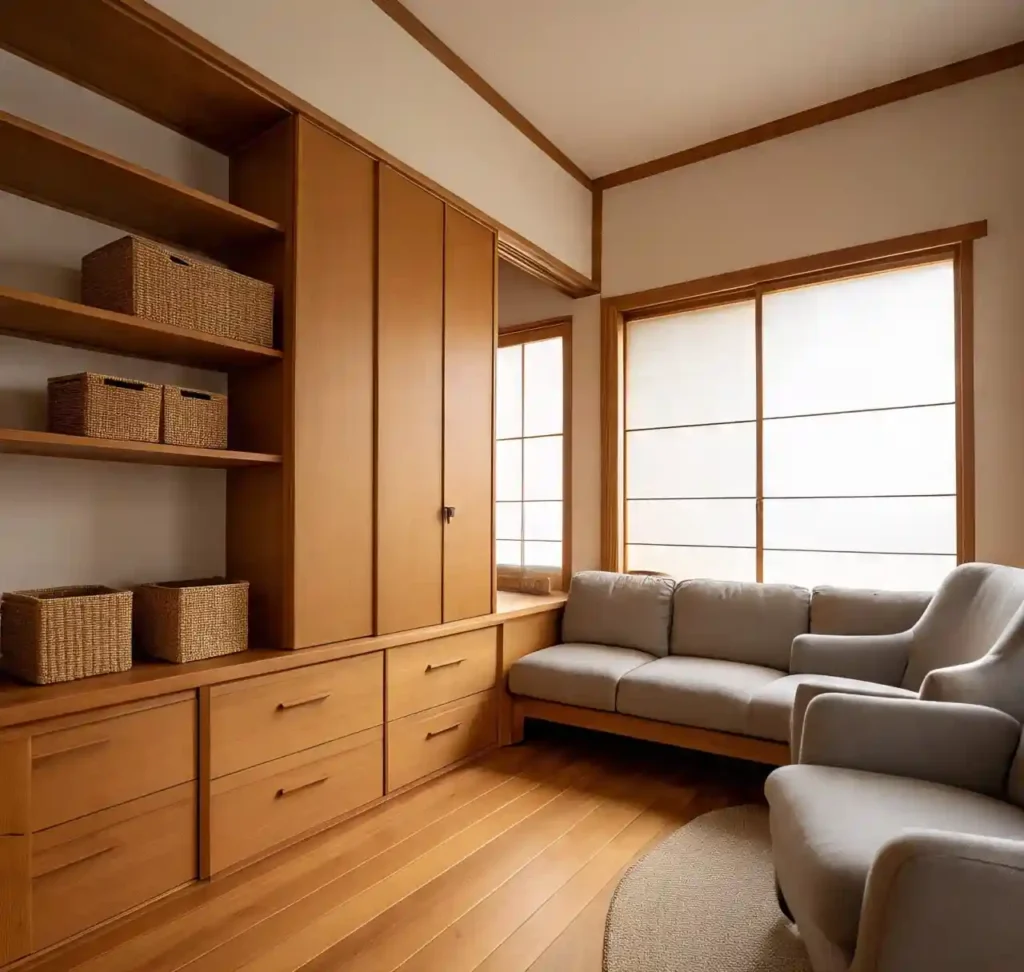
11. Use Floor Seating or Meditation Cushions for Grounded Living
Incorporate tatami mats, low stools, or floor cushions for casual seating that encourages a connection to the earth. These additions promote a slow-living atmosphere, perfect for reading, tea, or mindful lounging. They save space and feel wonderfully relaxed.
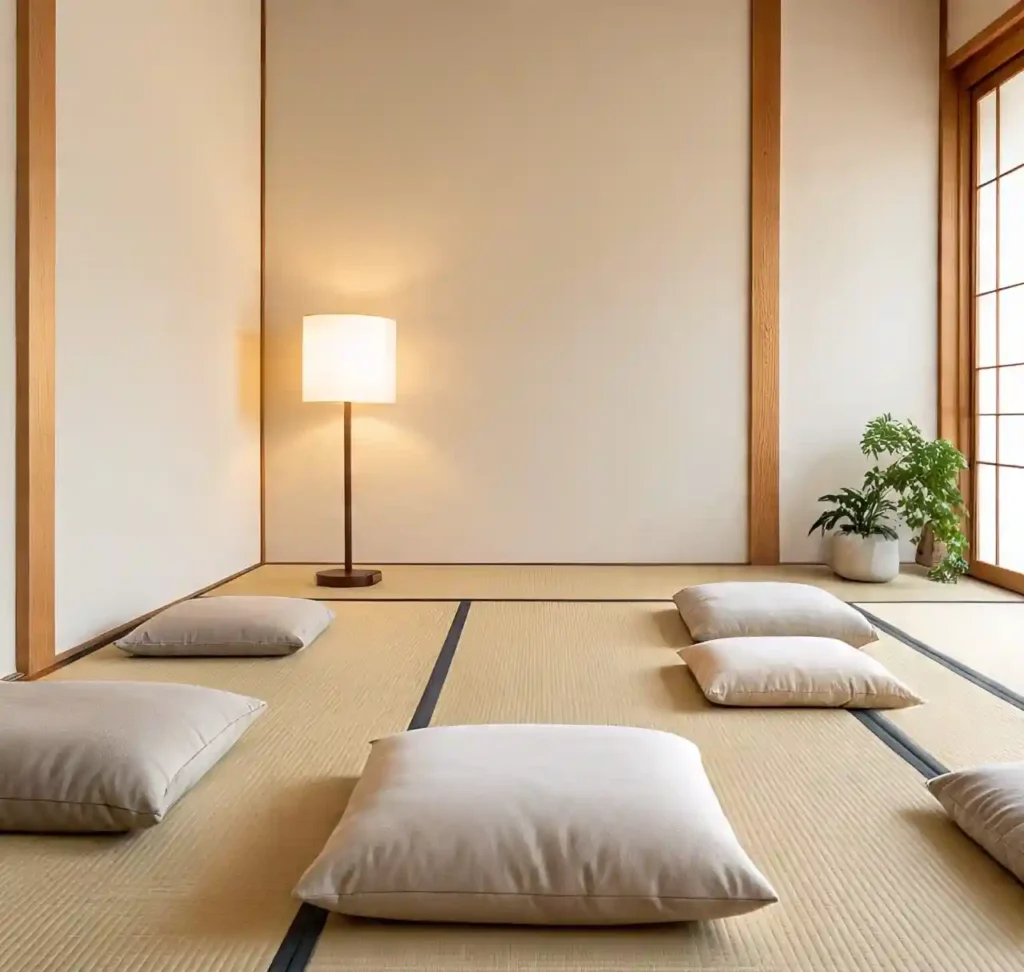
12. Combine Japanese and Scandinavian Design Elements Harmoniously
Japandi isn’t about choosing one style over the other; it’s about merging both. Mix the symmetry and functionality of Scandinavian furniture with the minimalist elegance of Japanese interiors. The result is a beautifully balanced room that feels curated, not themed.
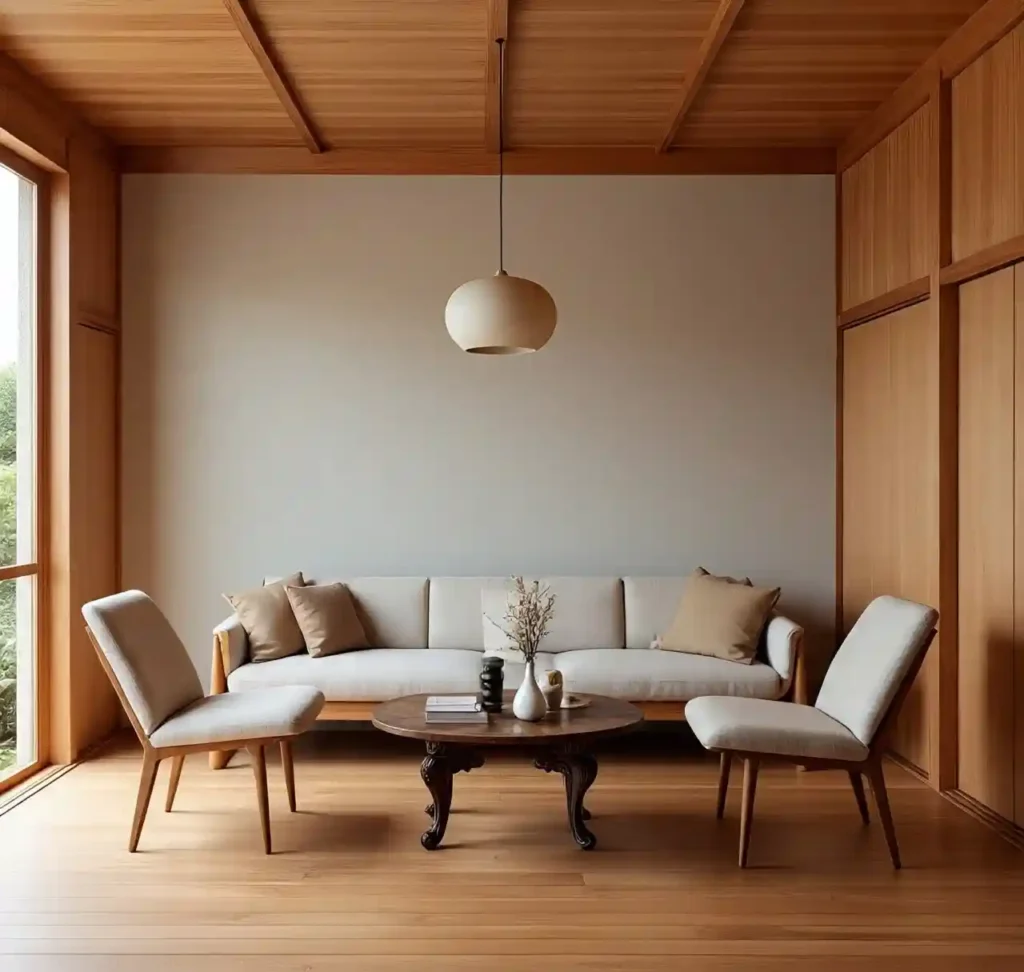
13. Incorporate Light-Reflecting Surfaces to Amplify Natural Light
Use mirrors, light woods, and soft textiles to reflect and diffuse sunlight throughout the room. Keep window treatments minimal; opt for sheer curtains or none at all. A well-lit space enhances the feeling of openness and peace.
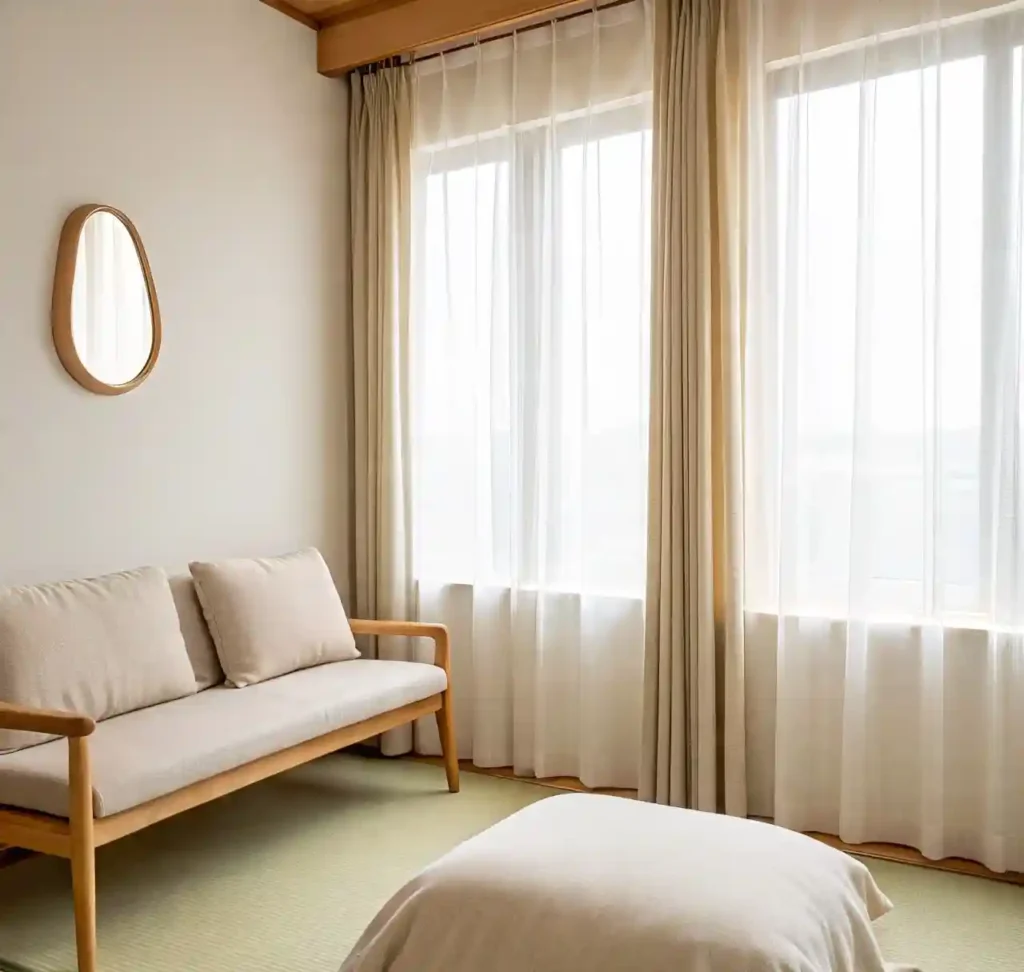
14. Select a Central Statement Piece and Build Around It
Choose one focal item, like a sculptural coffee table, art piece, or handcrafted sofa, and let it anchor your space. The rest of the decor should support it, not compete with it. This avoids clutter and emphasizes simplicity with intention.
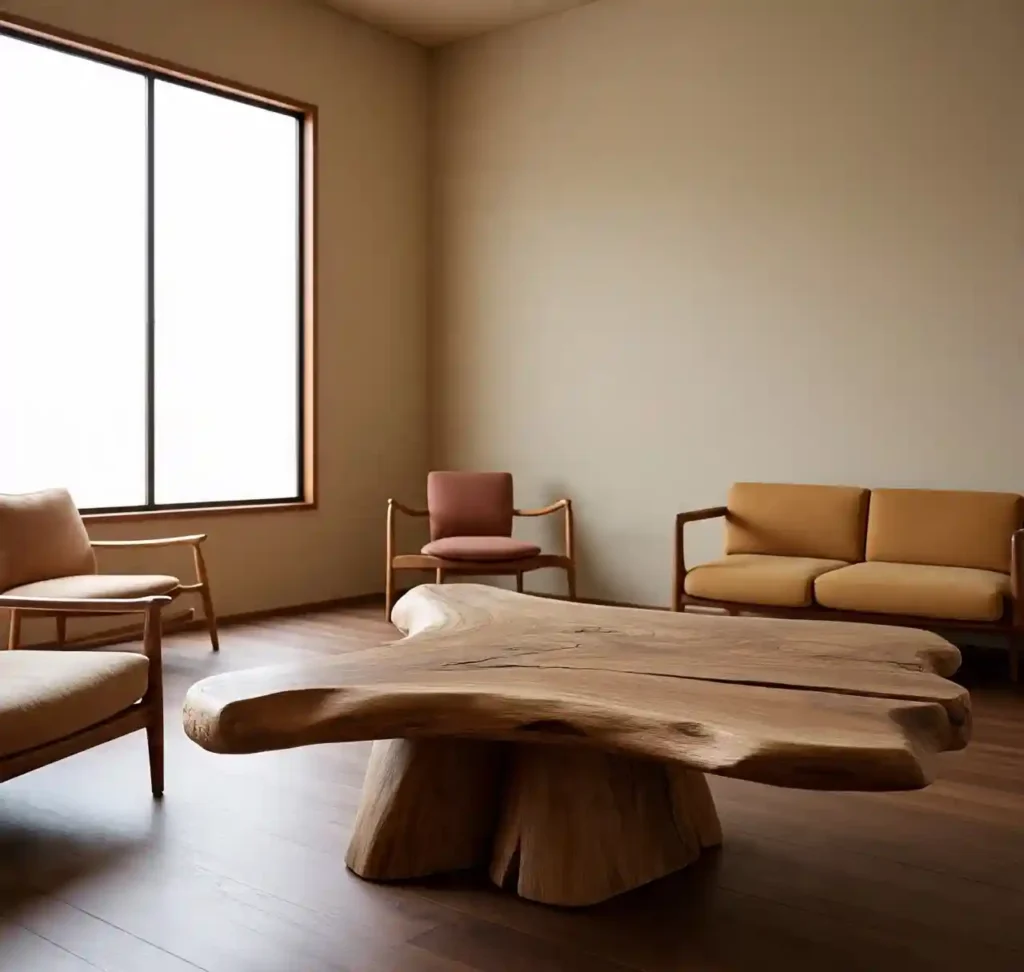
15. Use Ceramic and Clay Accessories to Add Earthy Texture
Handcrafted ceramic bowls, clay vases, and rustic trays offer an artisanal touch to Japandi spaces. Their raw finishes and subtle imperfections align perfectly with the wabi-sabi aesthetic. Stick to neutral or muted colors to maintain balance and cohesion.
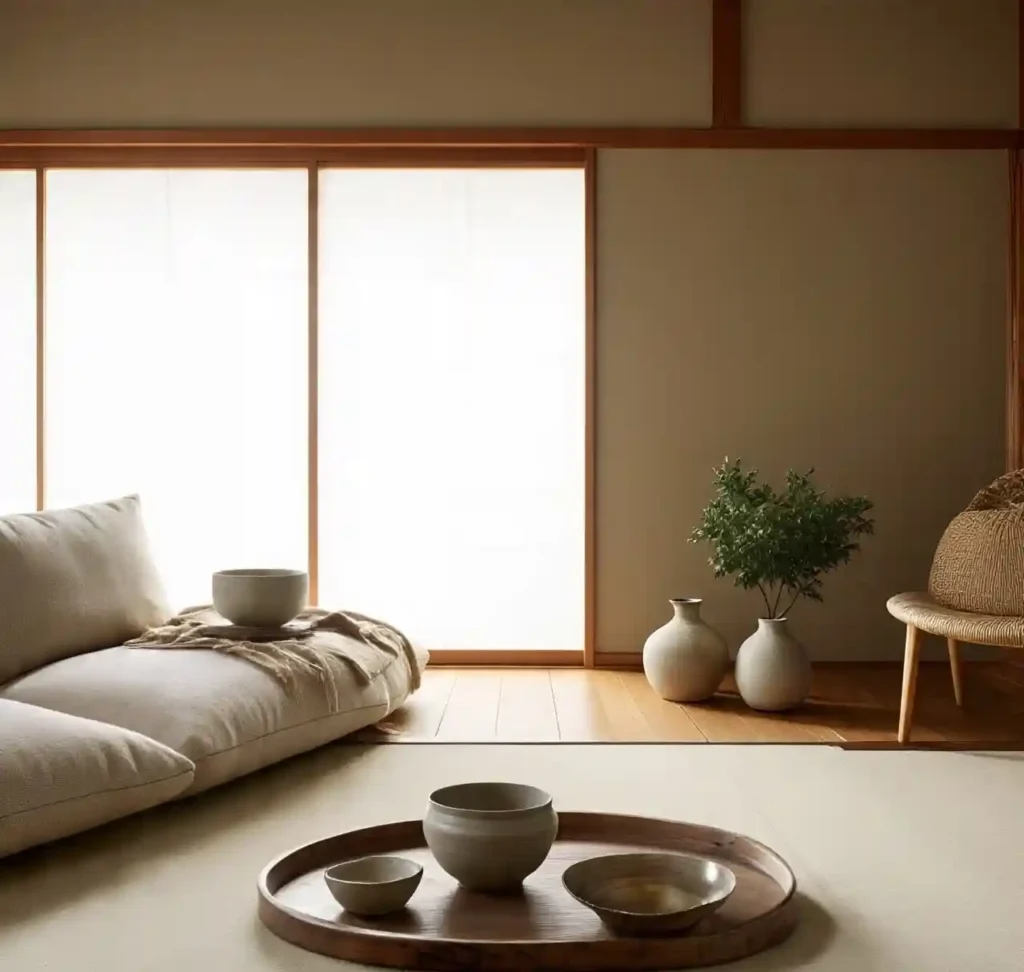
16. Keep the Layout Open and Uncluttered for Flow and Peace
Arrange furniture with flow in mind, avoiding bulky layouts or over furnished corners. Japandi emphasizes breathing space between elements, creating a more mindful experience. A clear path through the room fosters ease, calm, and clarity.
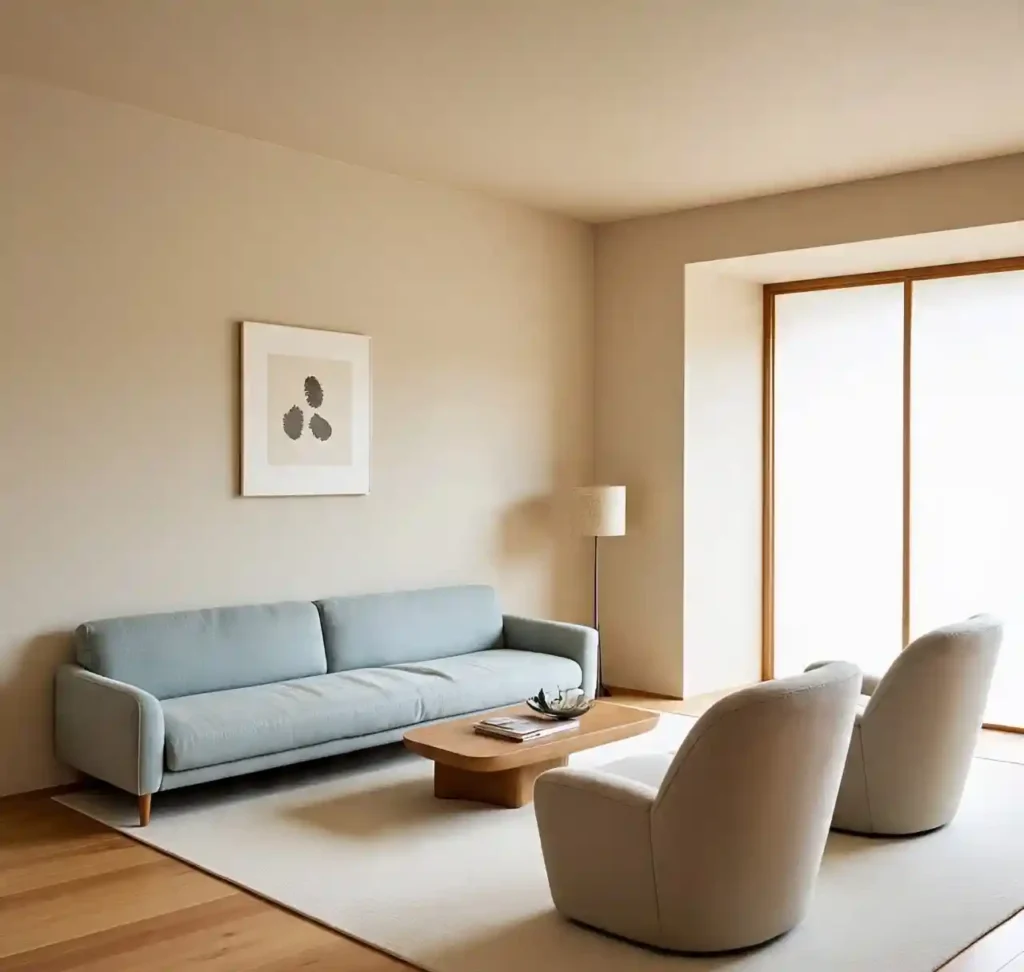
17. Use Black Accents to Introduce Visual Structure
While Japandi is rooted in softness, touches of matte black provide contrast and balance. Think black frames, lamp bases, or door handles to add definition. These small elements ground the space and add modern character without overwhelming the palette.
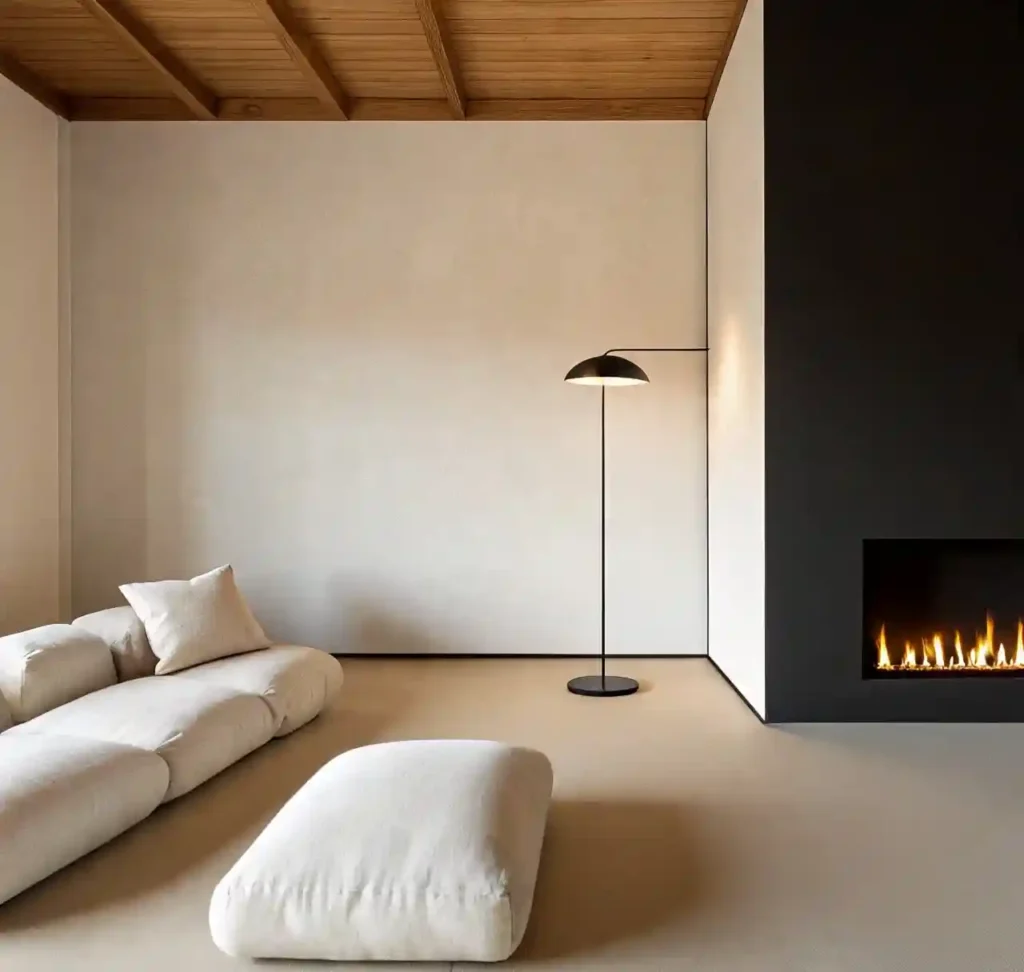
18. Add Water Features or Small Indoor Fountains for Tranquility
Water has a symbolic and sensory role in Japanese interiors. A small indoor fountain can introduce subtle sound and movement, enhancing the calming ambiance. Pair it with natural stones or pebbles for a Zen-like feel.
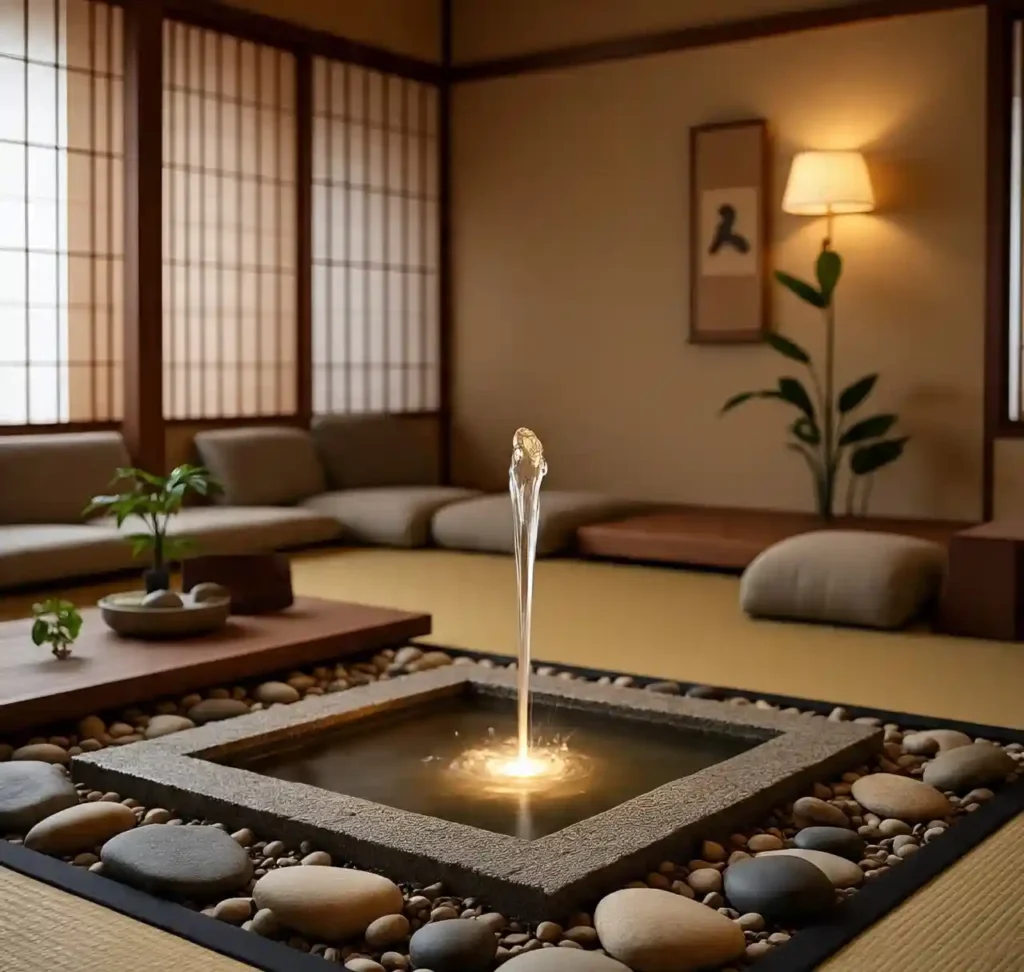
19. Embrace Asymmetry in Decor Arrangements
Rather than strict symmetry, embrace the Japanese preference for asymmetry in shelf styling or tabletop decor. Group objects in odd numbers and vary height and texture. This keeps the space feeling natural, spontaneous, and artful.
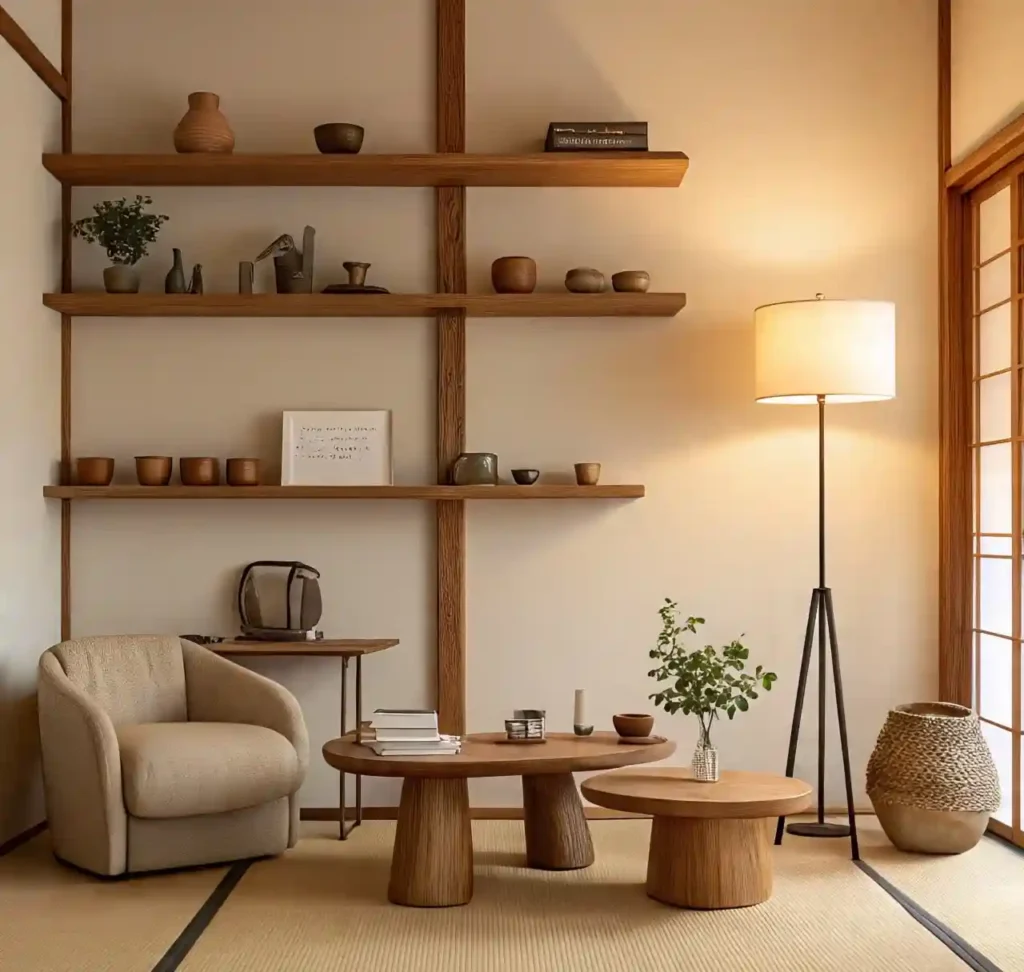
20. Choose Furniture With Rounded Corners and Soft Edges
Sharp corners can feel harsh in a Japandi space. Instead, opt for coffee tables, sofas, and benches with curved edges or rounded silhouettes. This creates visual softness and enhances the flow of energy throughout the room.
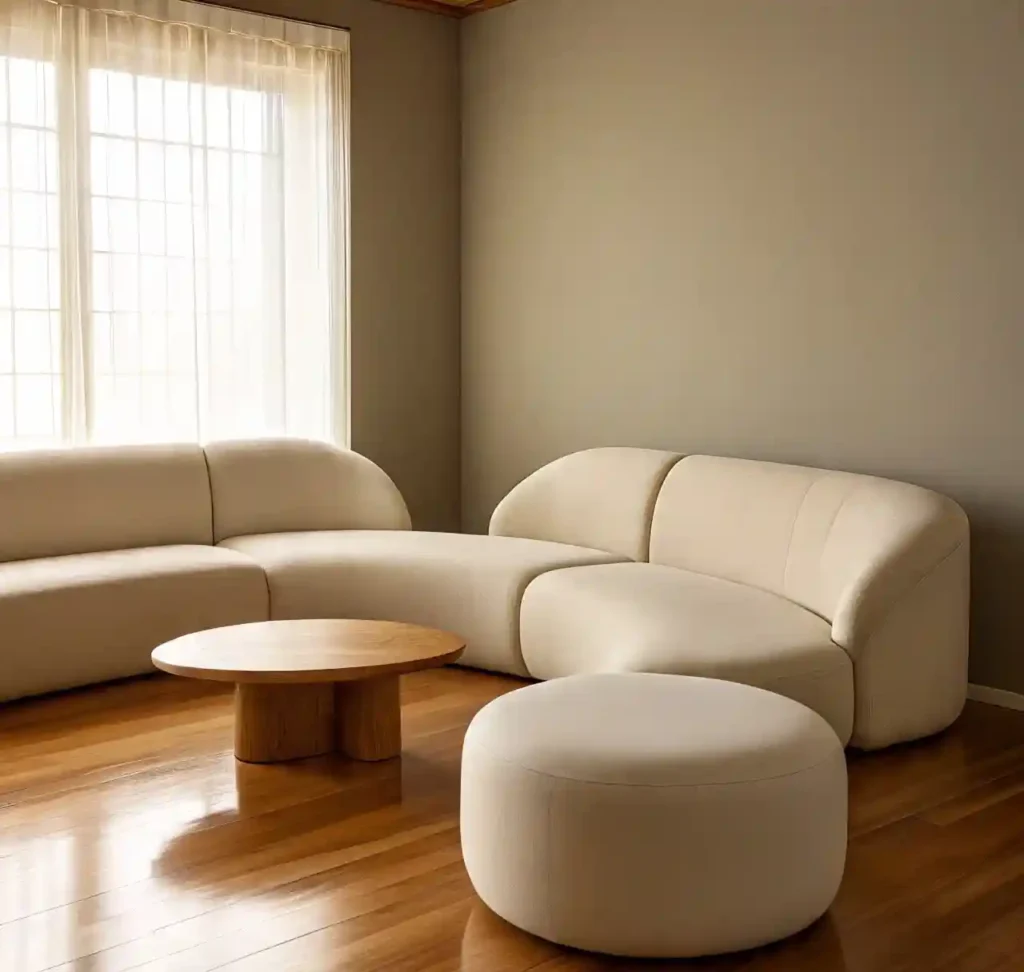
21. Display Only Objects That Serve a Purpose or Spark Joy
Adopt a “less but better” mindset when it comes to styling. Every item in the room should be useful or deeply meaningful. This Marie Kondo-inspired principle ensures your living room remains clutter-free and intentional.
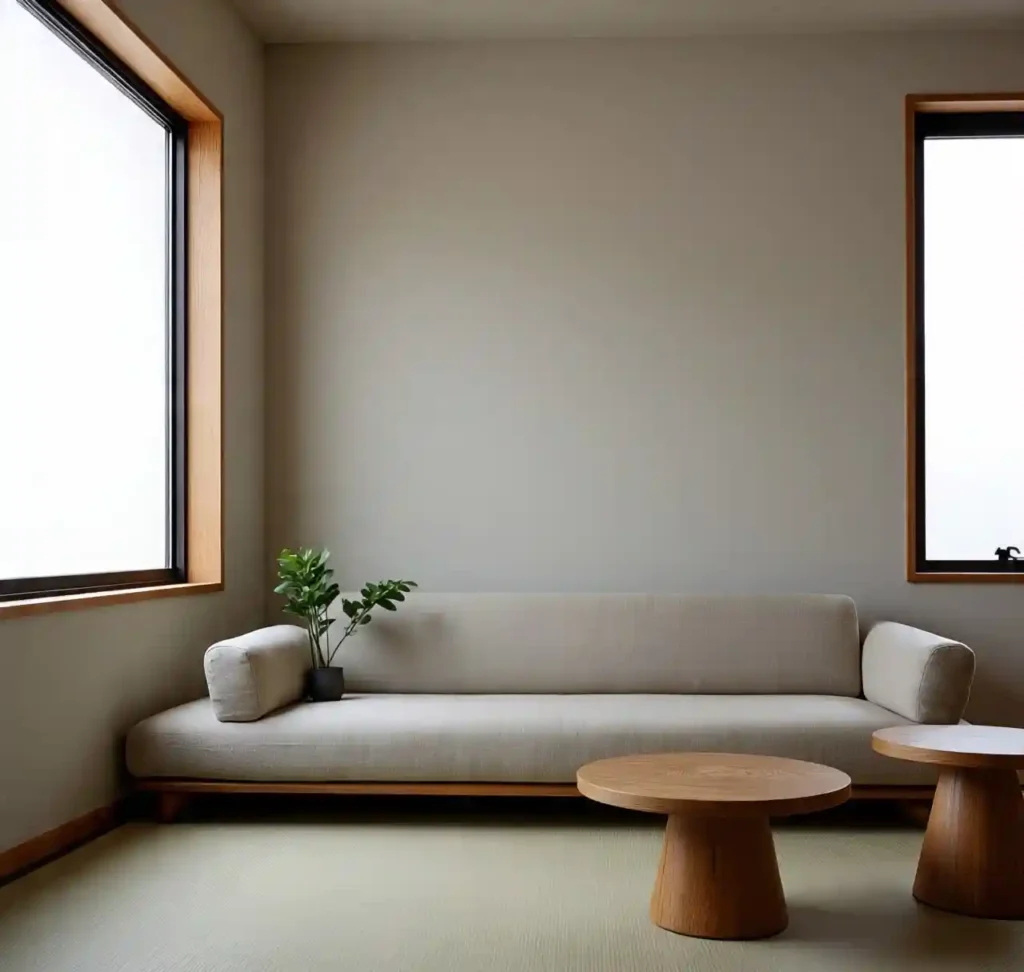
22. Style Open Shelves Sparingly With Books, Textiles, or Ceramics
If you use open shelving, avoid overcrowding. Mix a few books, rolled-up throws, and ceramic objects in neutral tones. Leave negative space between groupings to enhance visual serenity.
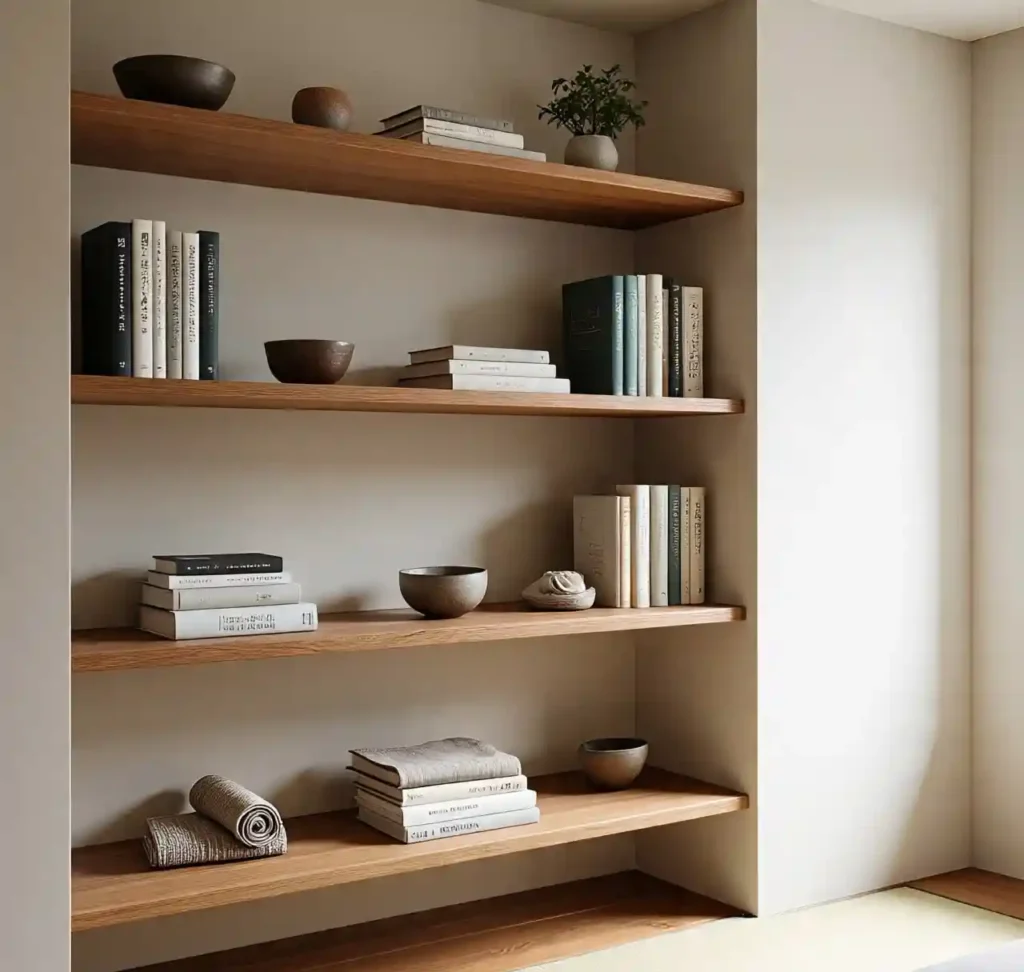
23. Add a Modern Electric Fireplace With Minimalist Design
A fireplace adds instant coziness to a Japandi room. Choose a model with clean lines, a neutral frame, and subtle flame effects. This adds warmth without disrupting the minimalist aesthetic.

24. Use Bamboo, Cane, or Rattan for Organic Accents
Natural materials like cane and rattan fit beautifully into Japandi interiors. Incorporate them through accent chairs, pendant lights, or baskets. These materials provide texture while maintaining the soft, muted color palette.
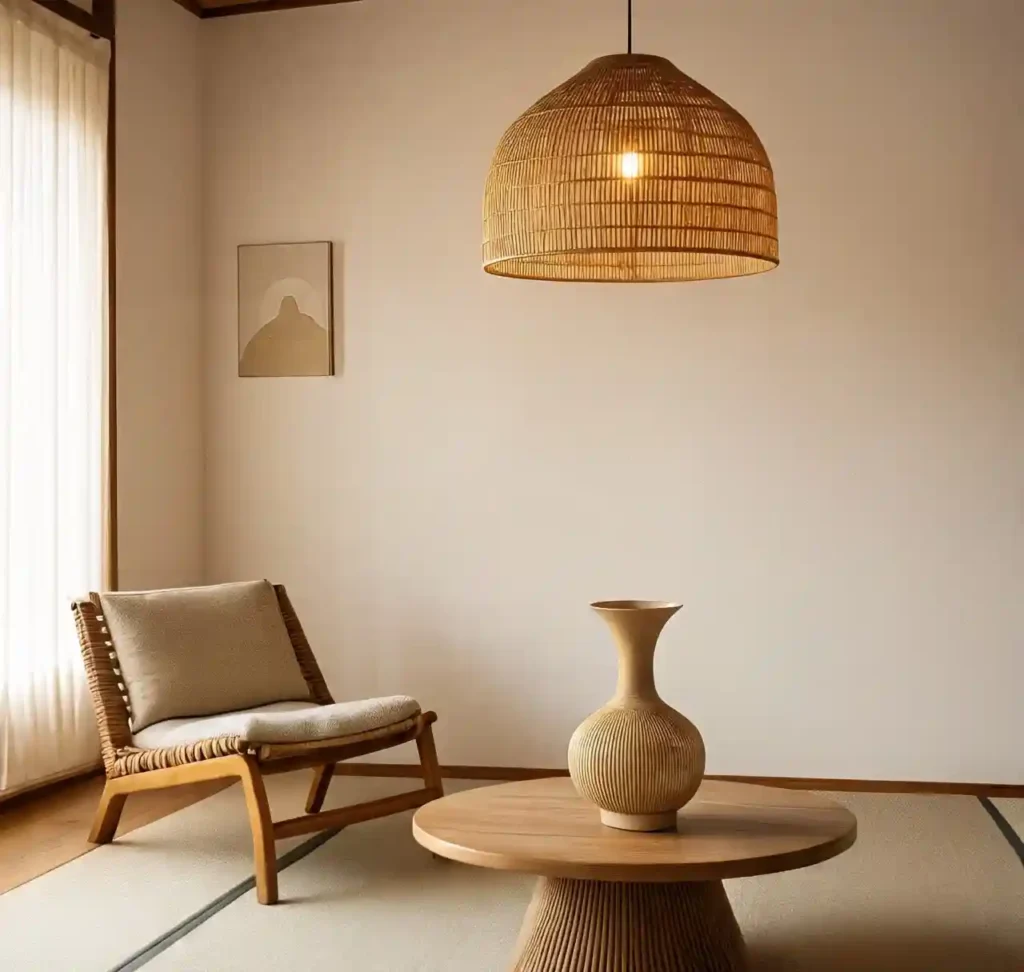
25. Add a Soft-Toned Area Rug to Anchor the Space
Choose a rug in cream, taupe, or dusty gray to define the seating area. Look for subtle textures like looped wool or woven jute. A well-placed rug adds warmth underfoot and connects the furniture cohesively.
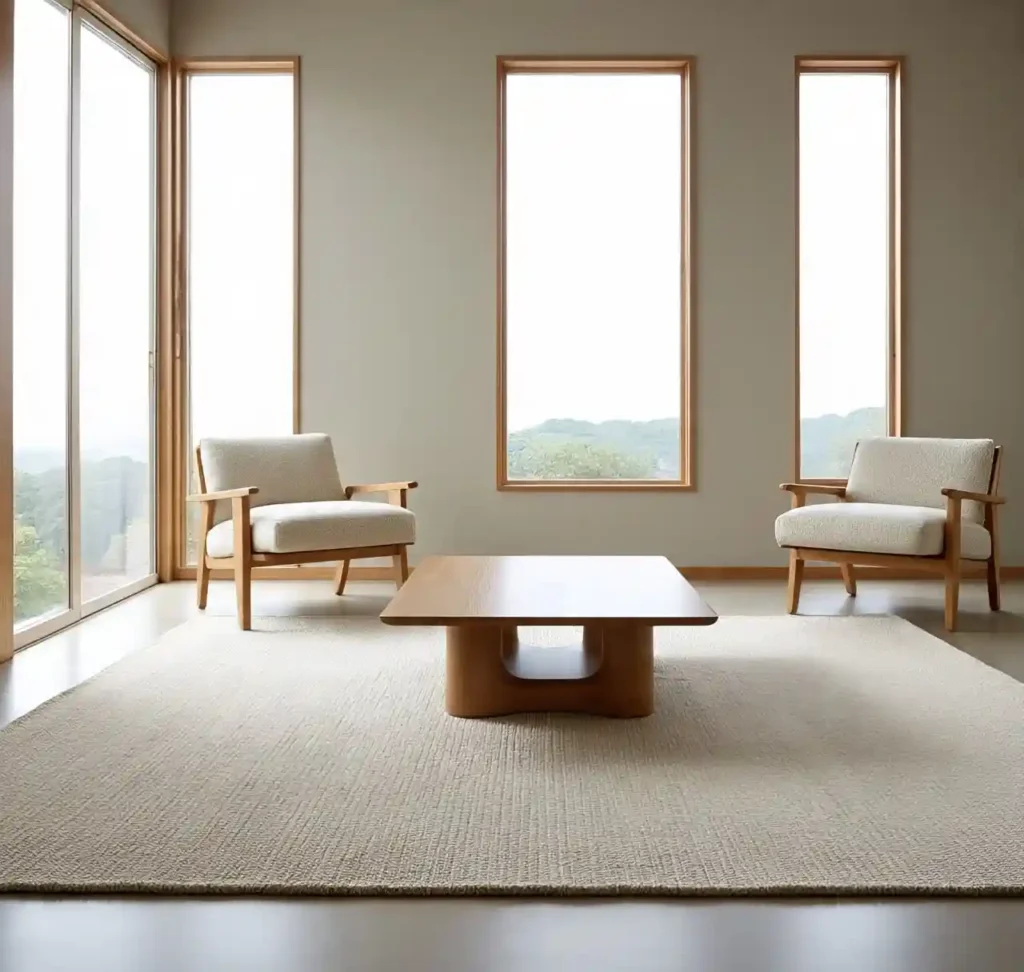
26. Introduce a Floor Mirror With a Thin Wood or Black Frame
A minimalist floor mirror can reflect light and expand the sense of space. Choose a tall mirror with a slim profile to keep it feeling airy and intentional. Position it near a window or across from a focal piece for the best effect.
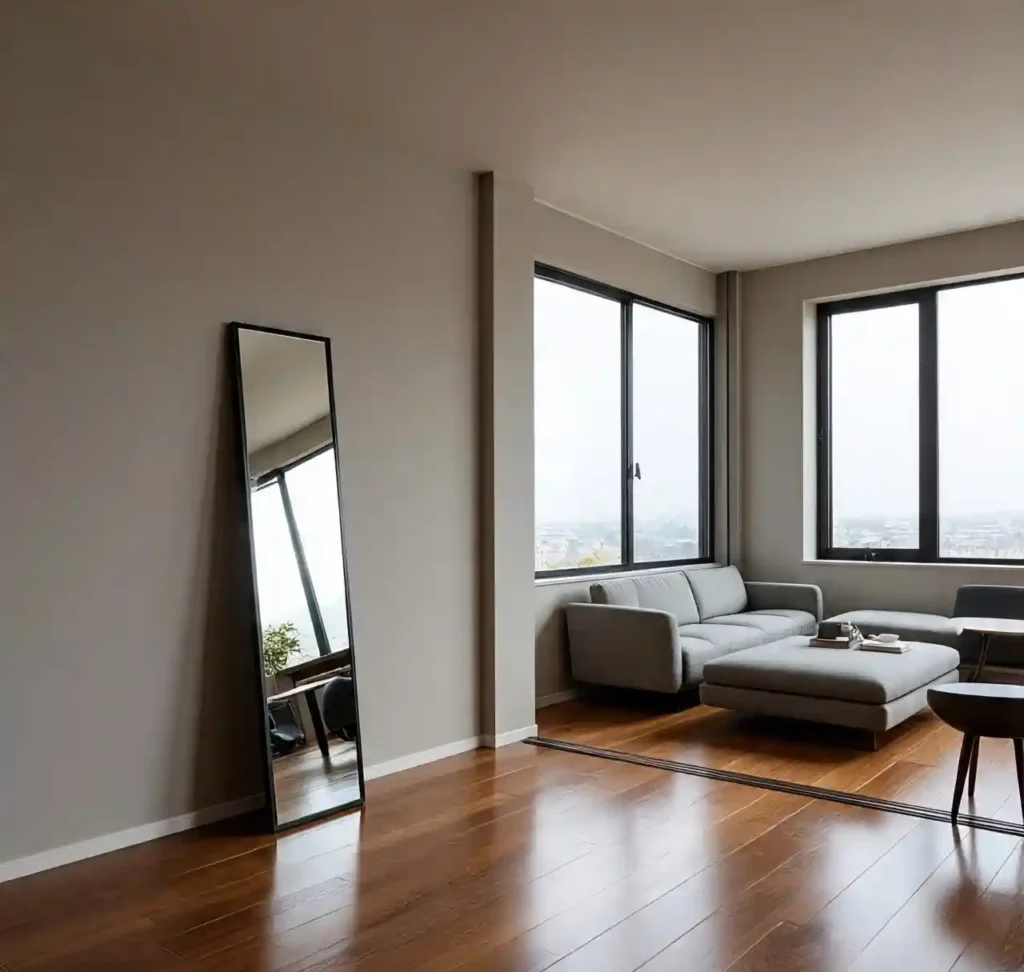
27. Create a Calm Corner for Reflection or Meditation
Set up a small nook with floor cushions, a linen throw, and maybe a bonsai or incense holder. This corner becomes a space for journaling, meditation, or quiet reading. It’s a physical reminder to slow down and live mindfully.
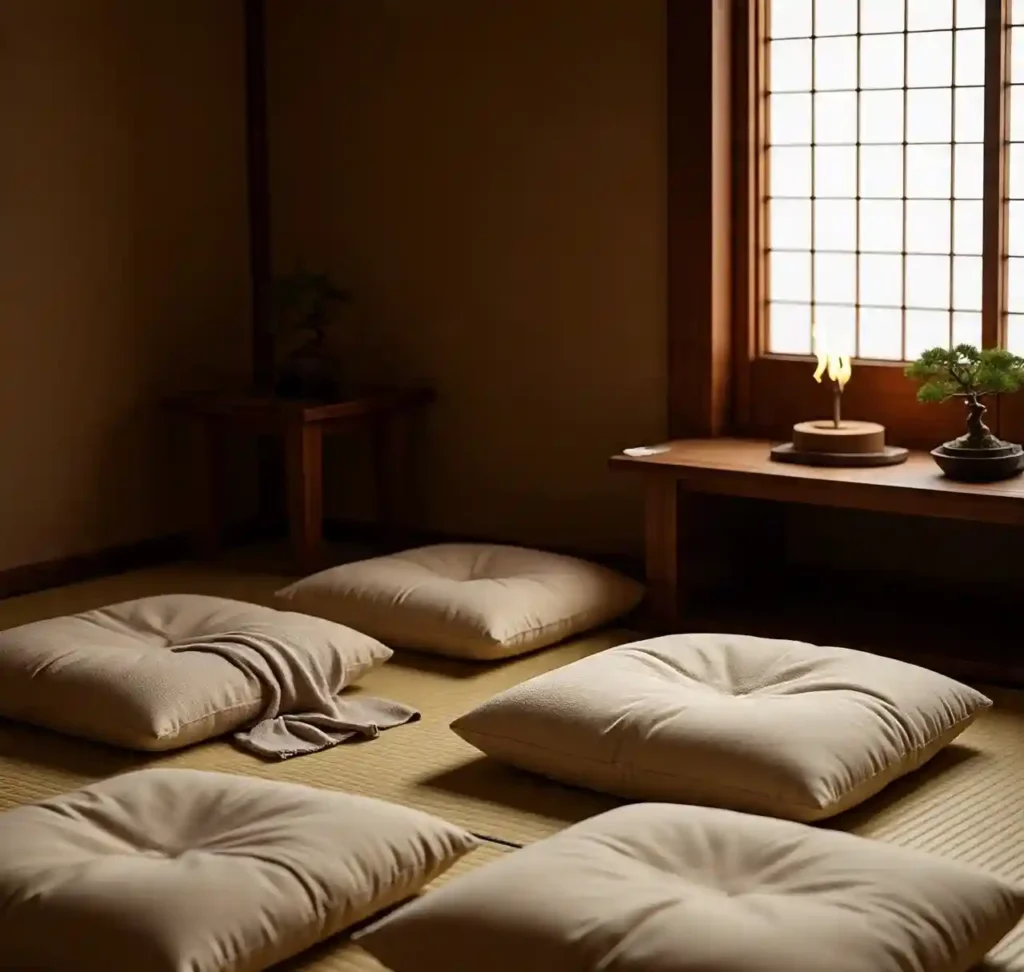
28. Let the Outdoors In With Large Windows or Natural Views
If possible, keep windows uncovered or use gauzy linen curtains. Framing the view of your garden or nearby trees enhances the connection to nature. The light and greenery outside become an extension of your Japandi interior.
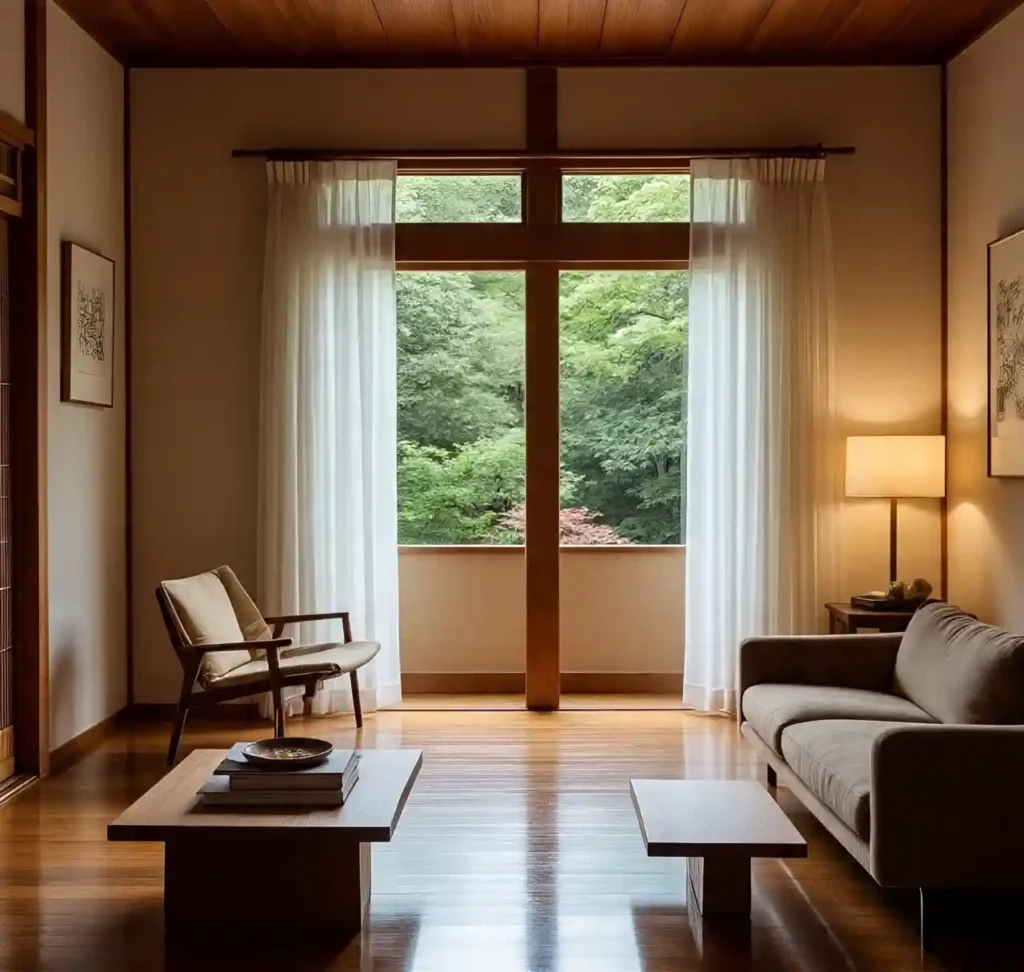
29. Stay Mindful and Evolve With Time – Japandi Is a Lifestyle
Japandi isn’t just a design trend; it’s a way of thinking about space and living intentionally. Keep refining your room by removing what no longer serves you and embracing new pieces slowly. A Japandi space grows with you, centered around calm, simplicity, and purpose.
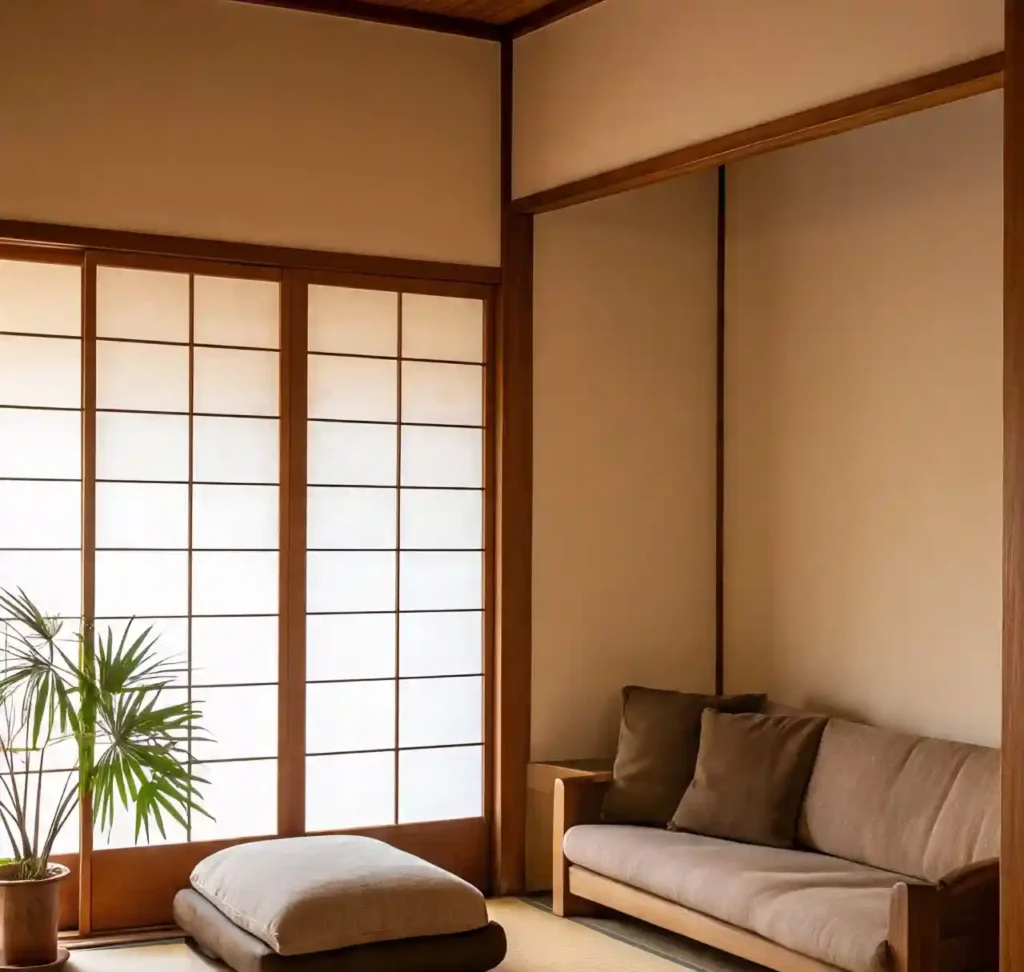
Final Thoughts: On Cozy Japandi Living Room Design Ideas
Whether you’re working with a compact studio or a spacious open floor plan, these 29 amazing cozy Japandi living room design ideas will guide you toward a more intentional, beautiful space. With its emphasis on balance, comfort, and natural living, Japandi design is perfect for anyone seeking harmony at home. Embrace less, focus on quality, and let your living room breathe with calm, minimalist elegance.

